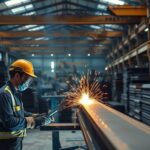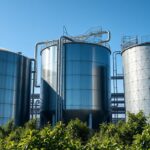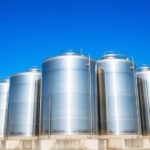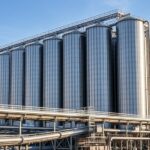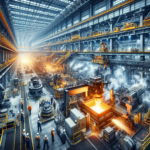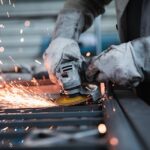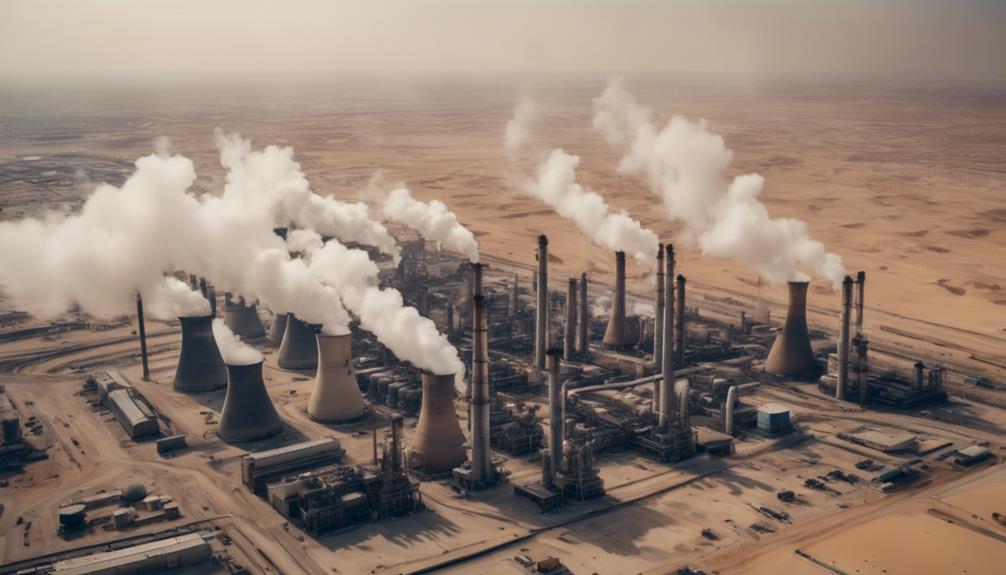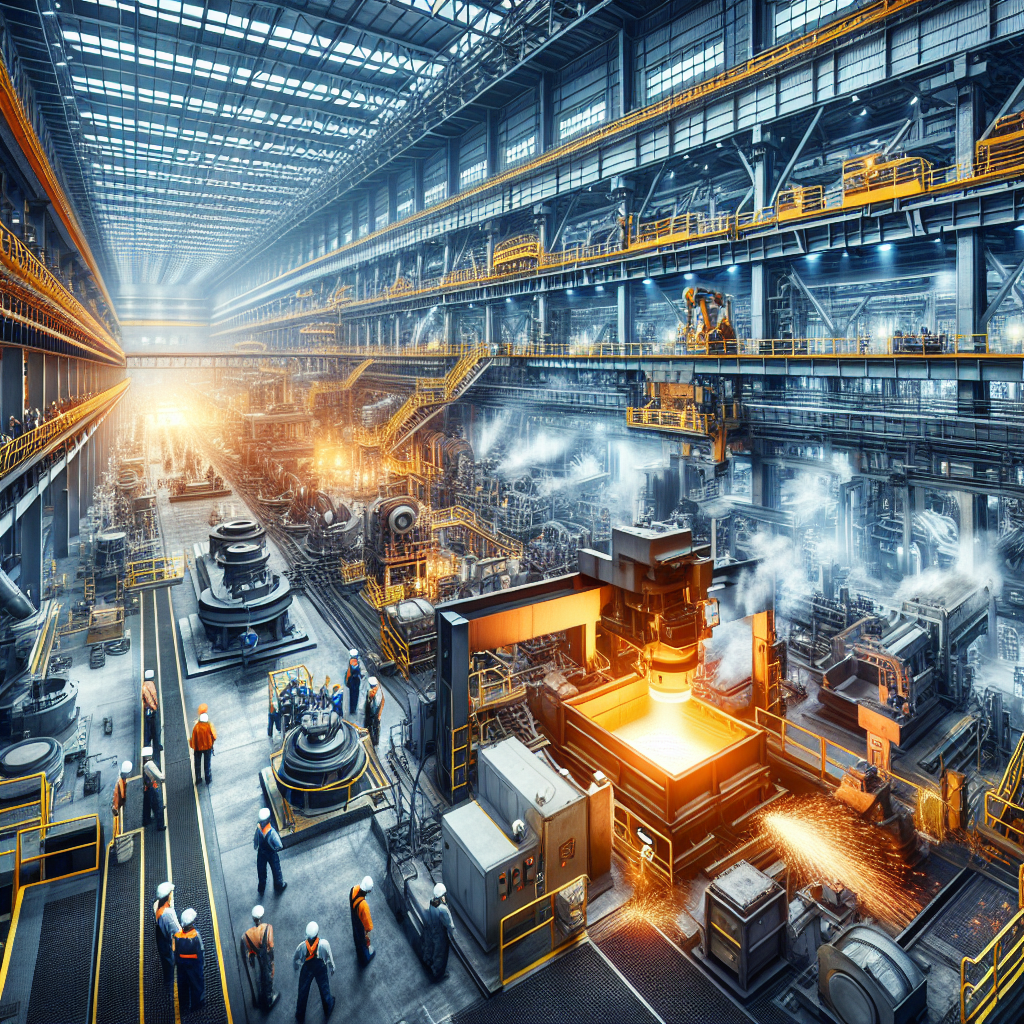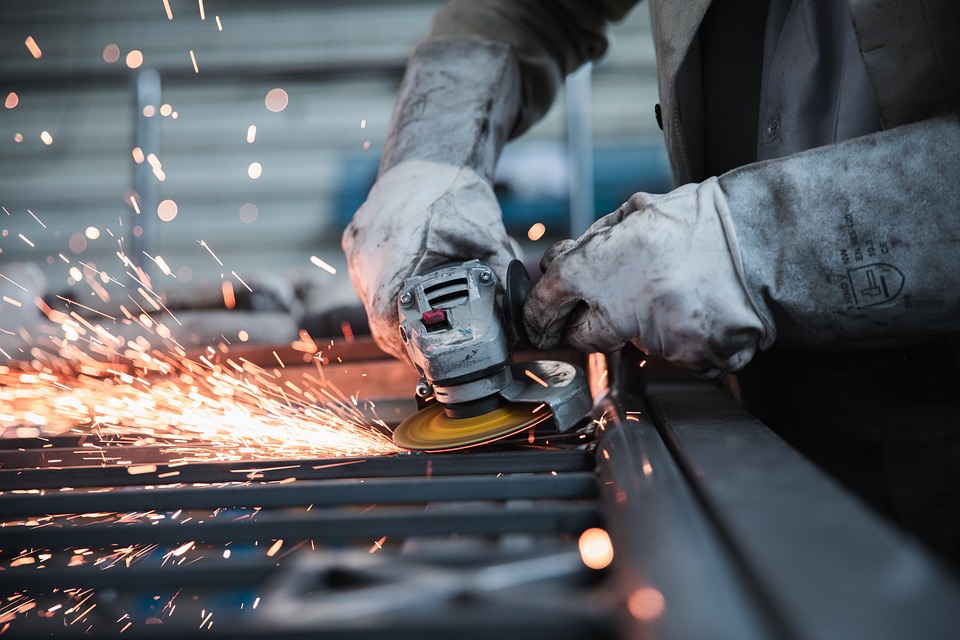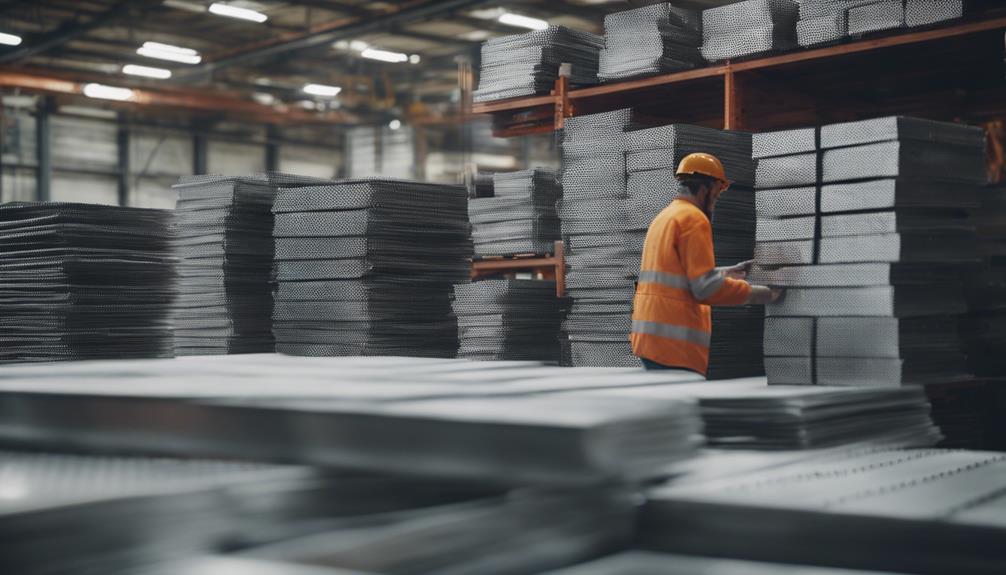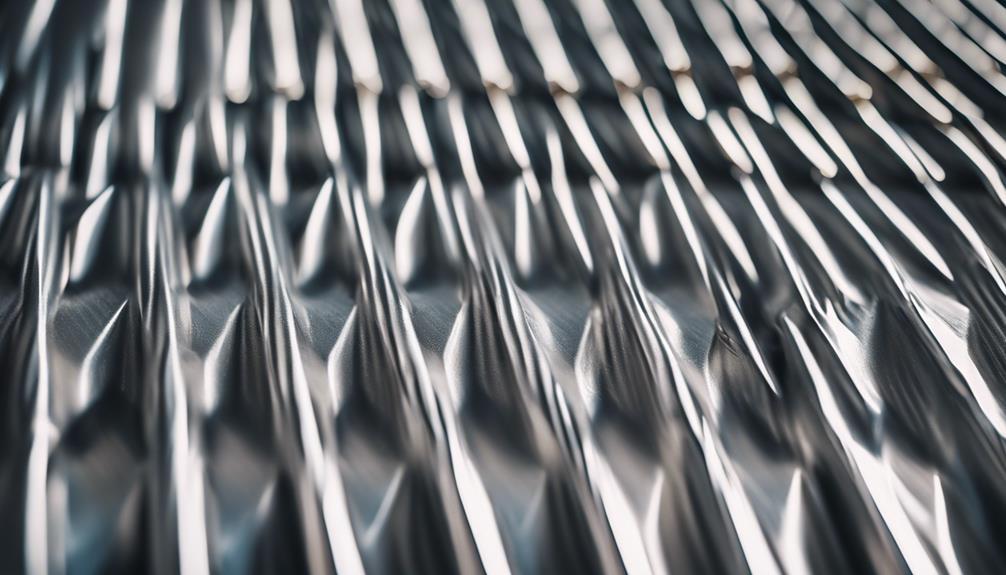Steel companies in KSA, such as Mitwalli Steel Products Factory Co. (MSP) and Hadeed, are instrumental in driving economic growth, contributing immensely to infrastructure projects, and playing a pivotal role in Saudi Arabia’s industrial advancement and GDP. These key players, along with others in the industry, have impressive production capacities, emphasize quality, and are essential for the country’s development in various sectors. Their commitment to innovation and excellence underlines their importance in the region’s steel manufacturing landscape, with substantial contributions exceeding 4% of the GDP and creating over 40,000 direct and indirect jobs.
Key Takeaways
- Steel companies in KSA drive economic growth and contribute significantly to various sectors.
- Key players like ISPC, Hadeed, Zamil Steel, Aasia Steel, and Shaaban Steel lead the industry.
- Hadeed is the largest steel company with a production capacity of 6 million tons.
- ISPC plays a significant role with a production capacity of 3 million tons.
- Al Rajhi Steel, Solb Steel, and Arab Steel Co. are also major contributors to the steel industry in Saudi Arabia.
Top 10 Steel Companies in Saudi Arabia
Among the top 10 steel companies in Saudi Arabia, Al-Ittefaq Steel Products Company stands out for its renowned reputation and substantial production capacity. Specializing in steel manufacturing, Al-Ittefaq has a robust production capacity that contributes greatly to the steel industry in Saudi Arabia. The company places a strong emphasis on quality management, ensuring that its products meet international standards and market demands. Al-Ittefaq’s commitment to innovation and excellence has positioned it as a key player in the Saudi steel sector. With a focus on meeting the diverse needs of the market, Al-Ittefaq plays a crucial role in driving economic development, job creation, and infrastructure projects in the country.
Role of Steel Companies in Saudi Arabia
Steel companies in Saudi Arabia play an essential role in driving economic growth and industrial advancement through their significant contributions to various sectors and infrastructure development. These companies are crucial for steel manufacturing, providing the necessary building blocks for construction, manufacturing, and other industries. Their contributions exceed 4% of Saudi Arabia’s GDP, aligning with the goals of Vision 2030 for infrastructure development. Moreover, the steel companies in Saudi Arabia create over 40,000 direct and indirect jobs, supporting the economy and fostering employment opportunities for the Saudi Arabian population. Leading companies such as ISPC, Hadeed, Zamil Steel, Aasia Steel, and Shaaban Steel are at the forefront of this industrial progress, driving innovation and growth in the steel sector.
List of Top 10 Steel Companies
Several prominent steel companies in Saudi Arabia are leading the industry with their impressive production capacities and commitment to quality and sustainability. Mitwalli Steel Products Factory Co. (MSP) and Saudi Iron & Steel Co. (Hadeed) are key players with production capacities of 3 million tons and 3.5 million tons, respectively. Zamil Steel Holding Company Limited, with an annual capacity of 555,000 tons, focuses on meeting international standards while emphasizing sustainability. Aasia Steel Factory Co. Ltd utilizes advanced manufacturing methods to produce steel rebar and wire rod, meeting the high demand for steel products. Shaaban Steel contributes to infrastructure development in Saudi Arabia with a production capacity of 2.5 million tons, making it one of the largest private steel producers in the country.
Largest Steel Companies in Saudi Arabia
Saudi Arabia hosts a robust steel industry, with key players like Saudi Iron and Steel Company (Hadeed) setting the standard with a production capacity of 6 million tons. Mitwalli Steel Products Factory Co. (MSP) also plays a significant role with a production capacity of 3 million tons. Al Rajhi Steel holds a 20% share of Saudi steel production and aims to boost capacity by 2.6 million tons. Solb Steel Company focuses on infrastructure development, investing 10 billion Saudi Riyals to establish a regional center. Additionally, Arab Steel Co. in Dammam is the largest private-sector steel project in the Middle East with plans for a capacity of up to 4.5 million tons. These companies contribute substantially to meeting Saudi Standards in the steel industry.
Top Steel Manufacturing Companies
Among the prominent entities shaping the steel manufacturing landscape in Saudi Arabia are several industry leaders recognized for their significant production capacities and strategic investments in infrastructure and quality reinforcement products. Saudi Iron and Steel Company (Hadeed) boasts a current capacity of 6 million tons, with plans to expand to 10 million tons by 2020. Al Rajhi Steel, holding a 20% share of Saudi steel production, aims to increase its capacity by 2.6 million tons. Mitwalli Steel Products Factory Co. (MSP) focuses on quality reinforcement bars with a production capacity of 3 million tons. Solb Steel Company invests in infrastructural development and currently produces 1 million tons of liquid steel, with further growth plans underway. These companies play an essential role in the steel and iron industry, emphasizing production capacity, quality products, and infrastructural development.
Arab Steel Co. Overview
What distinguishes Arab Steel Co. in the steel industry landscape of Saudi Arabia is its ambitious green-field integrated steel plant project aiming to achieve a capacity limit of up to 4.5 million tons. Situated in Dammam, Saudi Arabia, this project is the largest private-sector steel endeavor in the Middle East. The production at Arab Steel Co. is strategically planned in three phases to guarantee maximum efficiency and output. The company’s focus is on producing high-quality Hot Rolled Coils, Plates, and Billets. By emphasizing quality and efficiency in its operations, Arab Steel Co. aims to establish itself as a key player in the integrated steel sector, contributing substantially to the industrial landscape of Saudi Arabia.
Technological Advantages in Steel Production
Arab Steel Co.’s commitment to pioneering advancements in steel production technology is evident through its utilization of Twin Shell EAF and DC EAF technologies, alongside the incorporation of High Carbon DRI and Hot DRI Feeding methods to enhance efficiency and quality in the manufacturing process. By leveraging these cutting-edge technologies, the steel manufacturer in Dammam, Saudi Arabia, aims to produce up to 4.5 million tons annually, focusing on top-quality output such as 1.2 MTPA of Hot Rolled Coils, 0.8 MTPA of Plates, and 2.5 MTPA of Billets. The integration of innovative methods like Hot DRI Feeding not only optimizes the steelmaking process but also contributes to reducing energy consumption, positioning Arab Steel Co. as a leader in technological advancements within the steel industry.
Frequently Asked Questions
Which Is the Leading Steel Company in Saudi Arabia?
One of the prominent steel companies in Saudi Arabia isMitwalli Steel Products Factory Co. (MSP) . With a production capacity of 3.5 million tons, Mitwalli Steel Products Factory Co. (MSP) contributes immensely to the country’s GDP, maintains high production standards, and plays a crucial role in infrastructure development.
How Many Steel Plants Are There in Saudi Arabia?
Saudi Arabia hosts multiple steel plants catering to diverse industrial needs. These plants, with substantial annual production capacities, play a crucial role in meeting the nation’s demand for steel products. The steel industry in Saudi Arabia is pivotal for economic growth.
Who Is the Biggest Steel Manufacturer?
The biggest steel manufacturer globally is Arcelor Mittal, holding a significant market share. Their diverse product range and extensive presence in various regions make them a key player in the industry, known for their innovative solutions and sustainable practices.
What Is the Demand of Steel in Saudi Arabia?
The demand for steel in Saudi Arabia is estimated to be around 10-12 million tons per year, driven by rapid construction and infrastructure development. This demand is expected to grow by 19.5% due to housing needs and industrial expansion.
